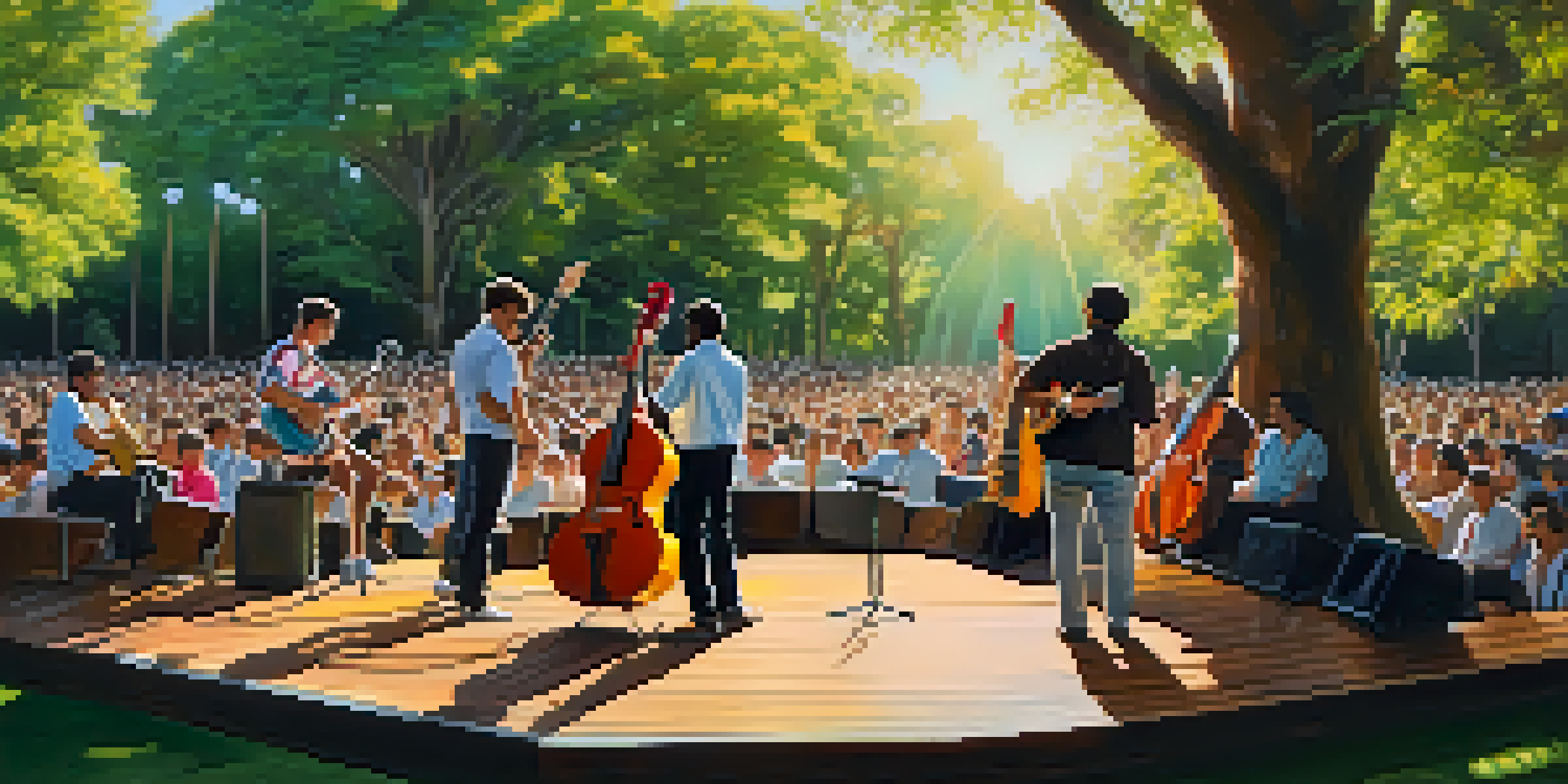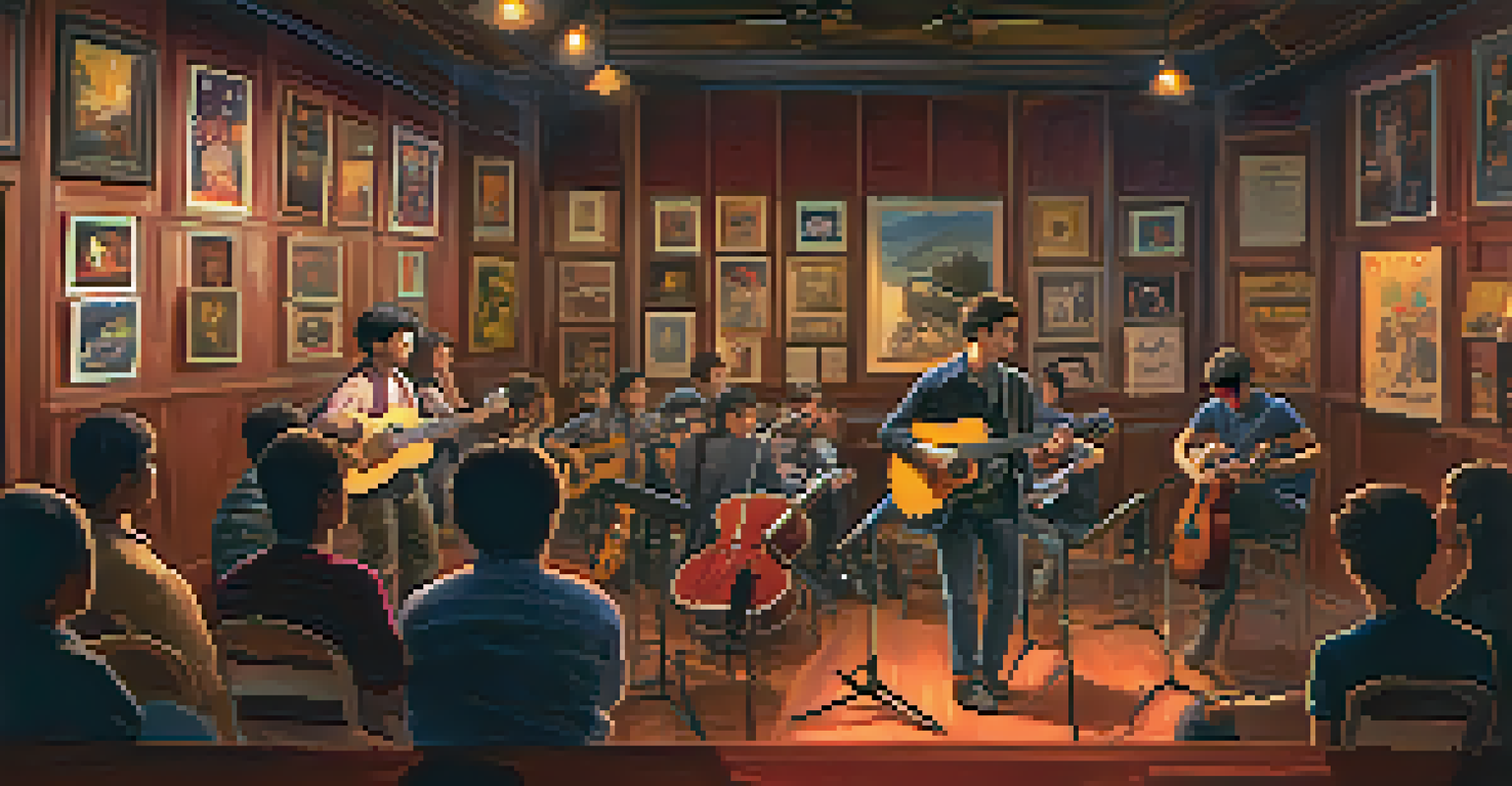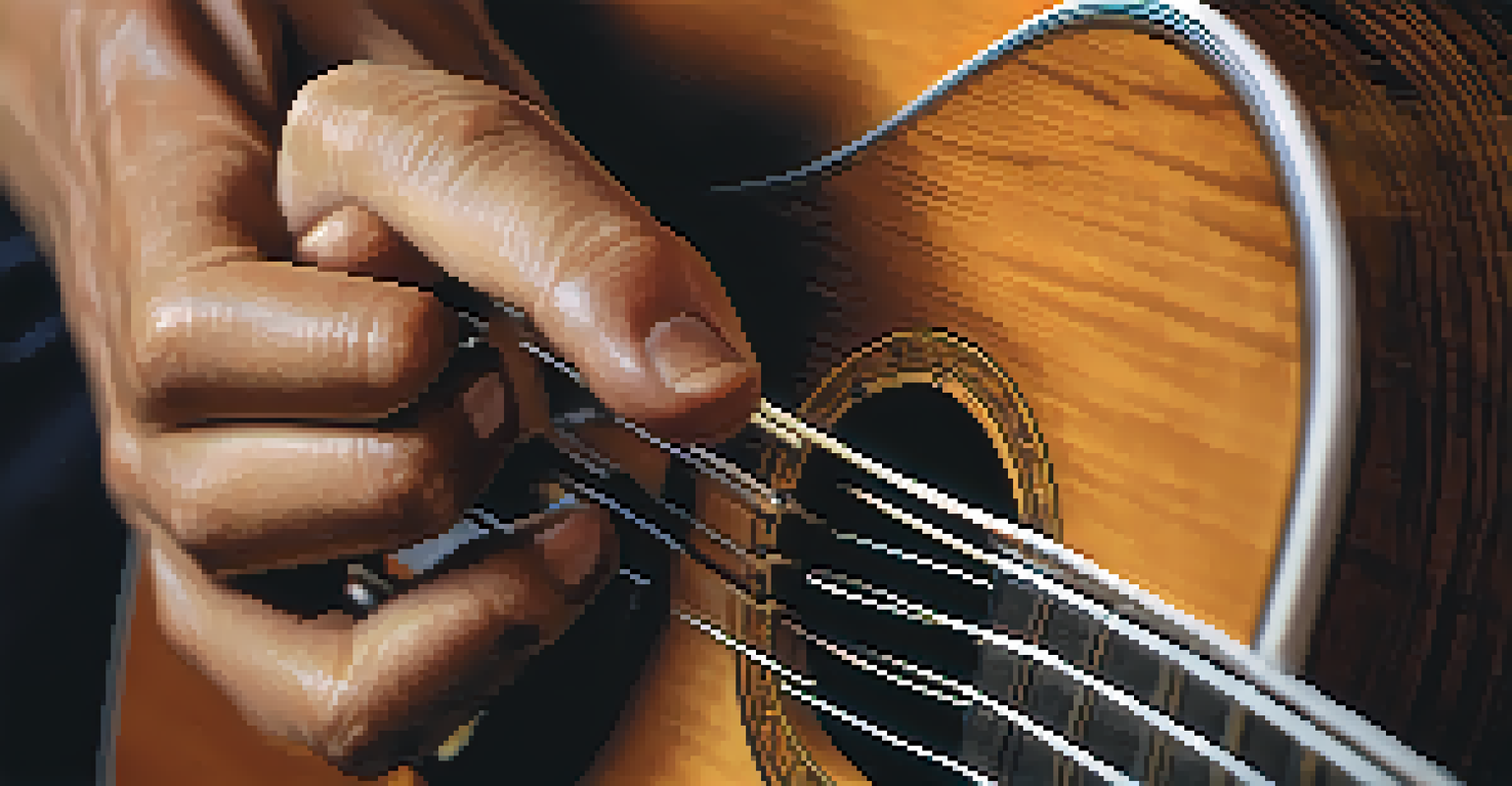How to Choose the Right Guitar Competition for You

Understand Your Goals Before Entering a Competition
Before diving into the world of guitar competitions, it's crucial to clarify your personal goals. Are you looking to gain experience, win prizes, or boost your confidence? Understanding your motivations will help you narrow down competitions that align with your aspirations.
Success is not the key to happiness. Happiness is the key to success. If you love what you are doing, you will be successful.
Consider whether you want to focus on performance, songwriting, or a specific genre. For instance, if you’re a blues guitarist, entering a blues-focused competition might be more beneficial than a general one. This alignment can enhance your experience and make it more fulfilling.
Lastly, take a moment to visualize where you see yourself after the competition. Do you want to be discovered by industry professionals, or are you more interested in the joy of performing? Keeping your end goals in mind will guide your decision-making process.
Research Different Types of Guitar Competitions
Guitar competitions come in various forms, from local contests to international festivals. Each type has its unique vibe and expectations, so it's important to research what’s out there. For instance, some competitions may focus on classical guitar, while others welcome all styles.

Consider the format of the competition as well—some may involve live performances, while others might require recorded submissions. If you thrive in front of an audience, a live competition could be invigorating, while recorded submissions might suit those who prefer to perfect their performance.
Define Your Goals Before Competing
Clarifying your personal motivations helps you choose competitions that align with your aspirations.
Additionally, look into the reputation of the competitions you’re considering. Reading reviews or seeking feedback from past participants can provide valuable insights into what to expect.
Evaluate Your Skill Level and Experience
It's important to assess your current skill level honestly. Are you a beginner, intermediate, or advanced guitarist? This self-evaluation will help you choose competitions that match your abilities, ensuring you’re neither overwhelmed nor under-challenged.
The only way to do great work is to love what you do.
If you're just starting, look for competitions that cater to beginners. These often have a more supportive atmosphere, allowing you to gain valuable experience without the pressure of competing against seasoned players. On the other hand, if you’re more experienced, you might seek competitions that push you to grow further.
Moreover, consider how much performance experience you have. If you’ve played in front of audiences before, you might feel ready for more competitive settings. But if your experience is limited, a smaller, local competition could be a great starting point.
Consider the Competition's Location and Format
The location of the competition can significantly impact your experience. Are you willing to travel far, or do you prefer to stay closer to home? Local competitions often provide a more convenient option, especially if you're just starting out.
In addition to location, think about the format of the competition. Some may require you to perform live in front of judges, while others accept video submissions. If you feel more comfortable recording your performance, look for competitions that offer this option.
Research Competition Types and Formats
Understanding the different types and formats of competitions ensures you select one that matches your skills and preferences.
Also, consider whether the competition is in-person or virtual, especially in light of recent global events. Virtual competitions can offer flexibility and accessibility, allowing you to participate without the stress of travel.
Examine the Prizes and Recognition Offered
When choosing a competition, take a close look at the prizes on offer. Some competitions provide monetary awards, while others may offer scholarships or opportunities for professional development. Think about what type of reward would be most valuable to you.
Recognition can be just as important as tangible prizes. Consider whether the competition is well-known in the music community. Gaining recognition from a prestigious competition can open doors for future opportunities and collaborations.
Additionally, some competitions may provide feedback from judges, which can be incredibly beneficial for your growth as a musician. This constructive criticism can help you pinpoint areas for improvement, making the experience worthwhile, regardless of the outcome.
Check the Rules and Requirements Thoroughly
Every competition has its own set of rules and requirements, and it's essential to read these carefully before entering. Pay attention to details like age limits, genre specifications, and performance duration. Missing a critical requirement could disqualify you.
Some competitions may have specific themes or topics that your performance must adhere to. Make sure you understand these guidelines to ensure your submission is eligible. It’s better to be fully informed than to find out too late that you’ve missed the mark.
Network and Reflect After Competing
Building connections with other musicians and reflecting on your experience fosters growth and can lead to future opportunities.
Additionally, consider whether there are any entry fees and what they cover. Some competitions might offer valuable resources or workshops as part of the entry, while others may simply require a fee for participation.
Network with Other Musicians and Participants
Competitions are not just about winning; they’re also a fantastic opportunity to connect with fellow musicians. Networking can lead to collaborations, friendships, and invaluable advice from those who share your passion for guitar. So, make the most of these interactions!
Engage with other participants during the competition, whether in person or online. Share your experiences, exchange tips, or discuss your favorite guitar techniques. You never know who you might meet and how they could influence your musical journey.

Moreover, consider following up with contacts you make after the competition. A simple message can keep the conversation going and potentially lead to future collaborations or opportunities. Building a strong network can be just as rewarding as any competition prize.
Reflect on Your Experience and Growth Post-Competition
After the competition, take time to reflect on your experience. What did you learn, both about your guitar skills and yourself as a performer? This reflection can provide insight into areas where you excelled and aspects where you might want to improve.
Regardless of the outcome, celebrating your participation is vital. Every competition is a step in your musical journey, contributing to your growth as a guitarist. Whether you win or not, the experience gained is invaluable.
Lastly, consider setting new goals based on your reflections. Perhaps you discovered a new style you want to explore or want to work on your stage presence. Embrace these insights as motivation for your next musical endeavor.